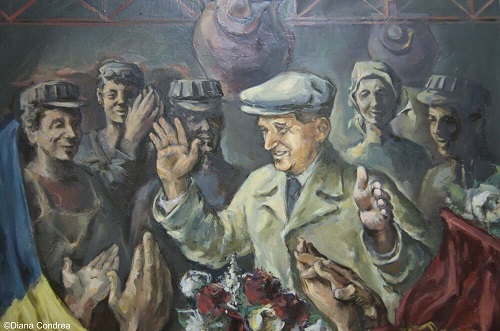- Editor's Page
They Call Me Jackie Robinson in Brazil
- Current events
- Features
- Fiction
- Children's Corner
- Antroposophy
- Poetry
- Words And Music
- Letters
- E-books
- Search
- Old Issues
- Contact
- ↑
SouthernCrossReview
SouthernCross
ReviewReview of fiction, education, science, current events,
essays, book reviews, poetry and AnthroposophyNumber 124, May - June 2019
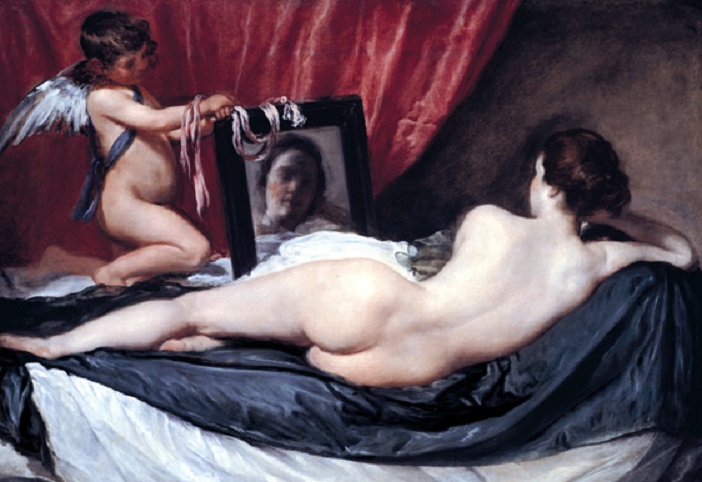
"Venus and Cupid"
Venus and Cupid is the last word in sensual languor. And one of the most famous bottoms of all time. But 100 years ago it was attacked as it hung in the National Gallery. The painting took at least five slashes with a meat chopper. Its attacker, Mary Richardson, a suffragette who later became a disciple of the fascist Oswald Mosley, was protesting against the arrest of Emmeline Pankhurst. "Slasher Mary", as the press dubbed her, later admitted that it wasn't just the picture's value - £45,000 in 1906 - that made it a target. It was "the way men visitors gaped at it all day long".
Diego Rodríguez de Silva y Velázquez (June 6, 1599 – August 6, 1660) was a Spanish painter, the leading artist in the court of King Philip IV, and one of the most important painters of the Spanish Golden Age. He was an individualistic artist of the contemporary Baroque period. In addition to numerous renditions of scenes of historical and cultural significance, he painted scores of portraits of the Spanish royal family, other notable European figures, and commoners, culminating in the production of his masterpiece Las Meninas (1656). From the first quarter of the nineteenth century, Velázquez's artwork was a model for the realist and impressionist painters, in particular Édouard Manet. Since that time, famous modern artists, including Pablo Picasso, Salvador Dalí and Francis Bacon, have paid tribute to Velázquez by recreating several of his most famous works.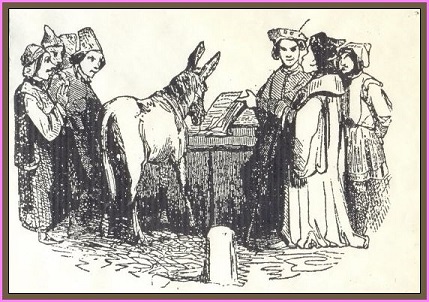 Browse in the SCR E-book Library
Browse in the SCR E-book LibraryTolstoy, an artillery officer who fought at Sevastopol, who knew his stuff, who was a hell of a man anywhere you put him—bed, bar, in an empty room where he had to think. I started out very quiet and I beat Mr. Turgenev. Then I trained hard and I beat Mr. de Maupassant. I’ve fought two draws with Mr. Stendhal, and I think I had an edge in the last one. But nobody’s going to get me in any ring with Mr. Tolstoy unless I’m crazy or I keep getting better.
Ernest Hemingway
Editor's Page
They Call Me Jackie Robinson in Brazil
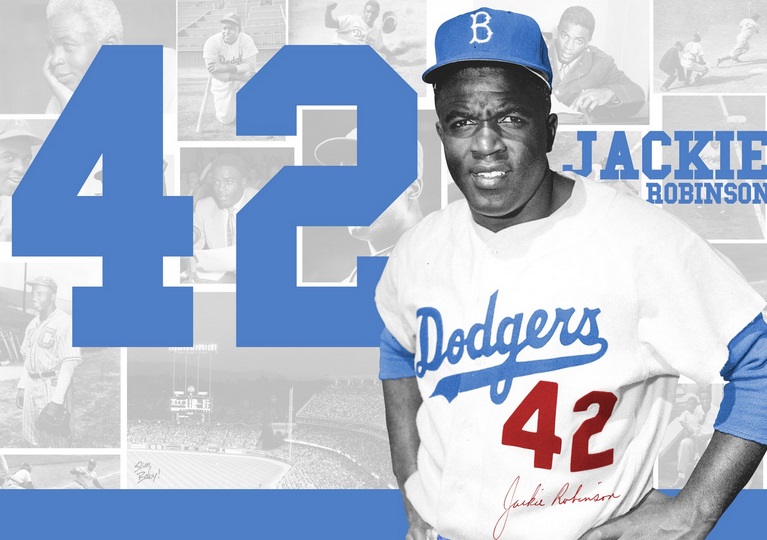
It's Jackie Robinson Day! All the major league baseball team players have his number – 42 – on their backs. Well, why not? Jackie was not only one of the best baseball players who ever lived, he was, more importantly, the first African American (called Negro back then) to play in the Major Leagues, for the Brooklyn Dodgers. He took a lot of racist insults – not in Brooklyn, in the South – which he knew he would, but never blew his top. It's not a national holiday yet, but somehow better.
As I watched the ceremony honoring his memory on TV, another personal memory came to mind: why they call me Jackie Robinson in Brazil..
Continue reading
Current Events
Turning Our Backs on Nuremberg - John Bolton and Mike Pompeo Defy the International Criminal Court
by Rebecca Gordon
Events just fly by in the ever-accelerating rush of Trump Time, so it’s easy enough to miss important ones in the chaos. Paul Manafort is sentenced twice and indicted a third time! Whoosh! Gone! The Senate agrees with the House that the United States should stop supporting Saudi Arabia in Yemen (and Mitch McConnell calls this attempt to extricate the country from cooperation in further war crimes “inappropriate and counterproductive”)! Whoosh! Gone! Twelve Republican senators cross party lines to overturn Trump’s declaration of a national emergency on the U.S.-Mexico border, followed by the president’s veto! Whoosh! Gone! Delegates to the March 2019 U.N. Environment Assembly meeting agree to a non-binding but important resolution drastically reducing the production of single-use plastic. The United States delegation, however, succeeds in watering down the final language lest it “endorse the approach being taken in other countries, which is different than our own”! Once again, the rest of the world is briefly reminded of the curse of American exceptionalism and then, whoosh! Gone!
Continue reading.
Goodbye to All That - The Forever Wars Go On Without Me
by Danny Sjursen
“Patriotism, in the trenches, was too remote a sentiment, and at once rejected as fit only for civilians, or prisoners.” -- Robert Graves, Goodbye To All That (1929).
I’m one of the lucky ones. Leaving the madness of Army life with a modest pension and all of my limbs intact feels like a genuine escape. Both the Army and I knew it was time for me to go. I’d tired of carrying water for empire and they’d grown weary of dealing with my dissenting articles and footing the bill for my seemingly never-ending PTSD treatments. Now, I’m society’s problem, unleashed into a civilian world I’ve never gazed upon with adult eyes... Continue reading
Features
Muhammad: An anticlerical hero of the European Enlightenment
by John Tolan
Publishing the Quran and making it available in translation was a dangerous enterprise in the 16th century, apt to confuse or seduce the faithful Christian. This, at least, was the opinion of the Protestant city councillors of Basel in 1542, when they briefly jailed a local printer for planning to publish a Latin translation of the Muslim holy book. The Protestant reformer Martin Luther intervened to salvage the project: there was no better way to combat the Turk, he wrote, than to expose the ‘lies of Muhammad’ for all to see. The resulting publication in 1543 made the Quran available to European intellectuals, most of whom studied it in order to better understand and combat Islam. There were others, however, who used their reading of the Quran to question Christian doctrine... Continue reading
The Cosmological Principle of Ancient Greece
by Konrad Rudnicki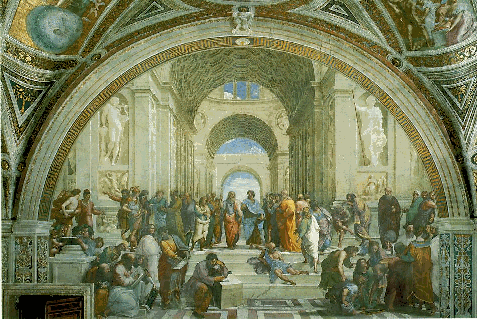
Several cultures arose, reaching their prime and then gradually declining, between the oldest known, the culture of ancient India, and the culture we want to refer now. One can mention here the cultures of ancient Iran, Egypt, Chaldea, and Babylon. All of them had quite definite views on celestial phenomena. Some nations, Chaldeans in particular, contributed much to astronomy but no account was left of their ideas about the Universe as a whole. Much is known about their views concerning the relationships between the Earth and the Moon, the Earth and the Sun, Venus or other particular celestial bodies, but neither contemporary records from those cultures nor documents written in later centuries but reflecting earlier views on the entire Cosmos (as was the case with the Bhagavad-Gita in respect to the outlook of ancient India) have yet been found by historians and archaeologists...
Continue reading
Chaucer was more than English: he was a great European poet
by Marion Turner
Prospect magazine profile of the UKIP leader Nigel Farage described the Brexiteer’s party in Chaucerian terms:UKIP is indeed a rag-tag bag … of cussed, contrary, wilful, protesting, obstreperous, bantering Englishmen and women, the like of which have been with us all the way back to The Canterbury Tales … the descendants of the brazen and garrulous Wife of Bath and the boisterous but genial Harry Bailey, Chaucer’s Inn Keeper. These are very English archetypes … This notion of the quintessential ‘Englishness’ of The Canterbury Tales (1387), authored by the ‘Father of English Literature’, has a long history. In 1400, Geoffrey Chaucer was buried in Westminster Abbey simply because he lived in its precincts; but 150 years later, he was reburied in a grand new tomb as the founder member of Poets’ Corner, becoming, almost literally, the cornerstone of English literature. Poets such as John Dryden claimed him as the ‘father of English poetry’, adding that his most famous poem, The Canterbury Tales, represented ‘the whole English nation’... Continue reading
Fiction
Words Unspoken II
by Gaither StewartI met Ramon on an early and bright October morning at the hour I like to admire the changing colors of the mountains. I was standing near what people in this Alpine village call the ‘holy place’, a spot marked by a red and blue ribbon, fixed on a low stone wall running along the edge of the road on the hill above our house down in the village center. It was still quite early. And no one else had passed. So I had been watching a man strolling up the road toward me. I recognized him, having glimpsed him a couple of times entering a house two doors down from our home on Via Piazza. At some ten meters distance he grins at me and says buon giorno in a crisp yet lazy Latin manner … so different from the speech of the serious mountain people of Montagna, a people whose seeming completeness in their insouciance and their isolation from the rest of Italy is still inexplicable to Ute and me... Continue reading
The Chess Player
by Hermann Hesse
This seemed to me to be worth looking into and I went in at this door. I found myself in a quiet twilit room where a man with something like a large chessboard in front of him sat in Eastern fashion on the floor. At first glance I thought it was friend Pablo. He wore at any rate a similar gorgeous silk jacket and had the same dark and shining eyes.
"Are you Pablo?" I asked.
"I am not anybody," he replied amiably. "We have no names here and we are not anybody. I am a chess player. Do you wish for instruction in building up your personality?"
"Yes, please."
"Then be so kind as to place a few dozen of your pieces at my disposal.
"My pieces--?"
"Of the pieces into which you saw your so-called personality broken up. I can't play without pieces." Continue reading
Anthroposophy
Understanding Modern History - Lecture 1
by Rudolf Steiner
In the course of these lectures I propose to make some important additions to the enquiry which I undertook here last week. Our earlier investigation gave us a certain insight into the impulses which determine the recent evolution of mankind. What I now propose to add will emerge from a study of the various turning points in modern history. We will endeavour to study this recent history up to the moment when we shall see how the human soul at the present day is related to the universe, in respect of its evolution within the cosmos and of its inner development in relation to the divine and its ego development in relation to the Spirit. I should like to show the connection between these things and the more or less everyday occurrences which are familiar to you. Therefore I will first take as my point of departure today — and the reasons for this will be apparent tomorrow and the day after tomorrow — the historical survey of the recent evolution of mankind which was to some extent the background to the observations on modern history, observations which I suggested in my public lecture in Zürich yesterday... Continue reading
The Fifth Gospel - Lecture Seven of Seven
by Rudolf Steiner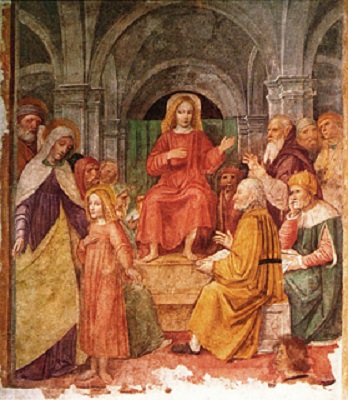
Basically in the universe there is nothing but consciousness. Except for consciousness, everything else belongs in the domain of maya, or the great illusion. You can find these facts in two places – in others as well – but especially in the description of the evolution of the earth from ancient Saturn to Vulcan in An Outline of Occult Science, where the evolution from ancient Saturn to ancient Sun, from Sun to ancient Moon, from Moon to Earth, and so on, are described as stages of consciousness. This means that if one wants to reach these important facts, he must ascend to a stage of cosmic events where they consist of stages of consciousness. Therefore, if we are describing realities we can only describe various stages of consciousness... Continue reading
Understanding the Mystery of Golgotha
by Rudolf Steiner
In our lecture today I should like to remind you how easy it is to misunderstand the real nature of the Mystery of Golgotha because we fail to recognize how difficult it is to achieve a deeper insight into that Mystery with our present mode of cognition. We may readily believe, for example, that through mystical contemplation, by turning inwards to seek the divine within, we shall find the Christ. The majority of those who have followed the path of mysticism have not found the Christ. We shall not find the Christ if we maintain, as many Theosophists maintain, that we must first become aware of the divine within and we shall then experience the Christ. That is not so. What, at most, under these circumstances may suggest the presence of an inner light, can never, if rightly understood, be called the Christ, but might be called a Universal Divine Being. And because we are not accustomed to differentiate today, even theoretically, many mystics believe that they can find the Christ through what is usually called mysticism, through a mysticism that is relatively uncontrolled. This is a delusion...
Continue reading
Poetry
Phenominal Woman
by Maya Angelou
Pretty women wonder
Where my secret lies.
I'm not cute or built
To suit a fashion model's size
But when I start to tell them,
They think I'm telling lies.
I say,
It's in the reach of my arms,
The span of my hips,
The stride of my step,
The curl of my lips.
I'm a woman
Phenomenally.
Phenomenal woman,
That's me...Continue
A Poem, for fun
by Alistair Potter
I decided to write a poem, for fun,
So looked at what some others had done.
First there was Shakespeare the Bard of course
And others possessing a certain force,
But that was old and stuffy stuff
And I, well, I meant to be tough.
So I looked at what others now are doing,
Didn't want to write what I'd be ruing...
Continue
Words and Music
Speak Low
Music by Kurt Weill, Lyrics by Ogden Nash, vocal by Sarah VaughanSpeak low, when you speak love.
Our summer day
Withers away
Too soon, too soon.
Speak low. When you speak love.
Our moment is swift
Like ships adrift,
We're swept apart, too soon.
Speak low, darling, speak low.
Love is a spark
Lost in the dark,
Too soon, too soon.
I feel wherever I go
That tomorrow is near,
Tomorrow is here,
And always too soon... Continue and Listen

Letters to the Editor
You can find us under the Southern Cross in the Traslasierra Valley, Province of Córdoba, Argentina. Visitors always welcome. Just follow the sign that reads: La Cruz del Sur.
Frank Thomas Smith, Editor
Contact
Author Guidelines
Older Issuessso we can advise you when the next issue is ready.
You can search for authors or titles, entering names or keywords in the Google search box below.
